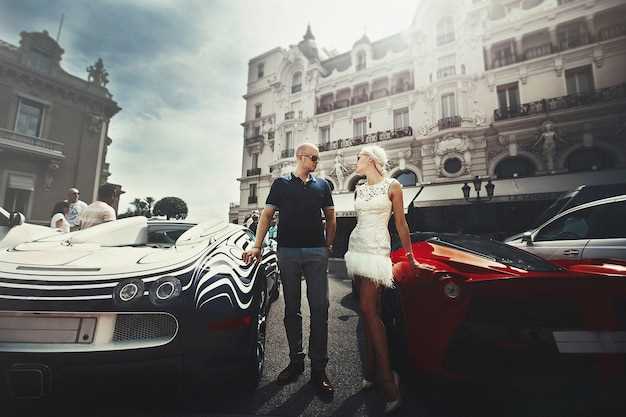
The story of the Porsche family is one woven into the very fabric of automotive history. At its heart lies Ferdinand Porsche, the visionary engineer whose ideas and innovations laid the groundwork for what would become one of the most revered car brands in the world. His relentless pursuit of excellence transformed not just the automobile industry but also established the Porsche name as a symbol of performance and luxury.
Ferdinand’s legacy is intricately linked to the evolution of the automobile itself. From the earliest days of the 20th century, he was a pioneer, designing the iconic Volkswagen Beetle, which would go on to be one of the best-selling cars in history. This foundational work was instrumental in shaping the automotive landscape, showcasing the potential of engineering combined with a passion for driving.
As the Porsche family grew, so too did its influence. The continuation of Ferdinand’s vision through his descendants ensured that the principles of innovation, quality, and performance remained at the forefront of the brand. This article will delve into the rich history of the Porsche family legacy, exploring how the spirit of Ferdinand Porsche continues to inspire generations and drive the company towards a future filled with exciting possibilities.
Porsche Family Legacy: A Comprehensive Insight

The Porsche family legacy is deeply intertwined with the history of the automotive brand that bears their name. Founded by Ferdinand Porsche in 1931, the company has become synonymous with high-performance sports cars and innovative engineering. Ferdinand’s vision was to create vehicles that combined performance, precision, and elegance, setting the foundation for what would become one of the most iconic brands in the automotive industry.
Ferdinand Porsche’s early work on the Volkswagen Beetle in the 1930s not only established his reputation as a master engineer but also laid the groundwork for his own brand. After World War II, the Porsche family faced numerous challenges but managed to revive the company with the introduction of the Porsche 356, a car that not only captured the spirit of driving but also marked the beginning of a new chapter in automotive history.
The legacy continued through Ferdinand’s descendants, particularly his son, Ferdinand “Ferry” Porsche. Ferry played a pivotal role in expanding the brand’s reach and refining its vision. Under his leadership, models like the Porsche 911 emerged, cementing the brand’s status as a leader in performance and design.
Today, the Porsche family legacy remains a driving force behind the brand’s ongoing success. The adherence to core values of innovation, quality, and performance has ensured that Porsche continues to thrive, producing vehicles that embody the essence of its distinguished history while looking towards the future.
The Innovations of Ferdinand Porsche and Their Impact
Ferdinand Porsche, a visionary engineer and automobile pioneer, made groundbreaking contributions that significantly shaped the automotive industry. His innovative spirit and expertise laid the foundation for the Porsche brand, known today for its performance and luxury vehicles.
Key innovations by Ferdinand Porsche include:
- The Electric Vehicle: In 1898, Porsche designed the Lohner-Porsche Mixte, one of the first gasoline-electric hybrid vehicles. This innovative approach paved the way for future hybrid technology.
- All-Wheel Drive: Ferdinand was instrumental in developing the concept of all-wheel drive with the Lohner-Porsche vehicle. This technology enhanced vehicle traction and stability, features that remain crucial in modern automotive design.
- Boxer Engine: In 1936, Porsche updated the boxer engine design, producing a lightweight, compact engine layout that contributed to improved handling and performance in various automobiles.
- Chassis Design: Porsche’s focus on optimizing chassis design resulted in a revolutionary approach to vehicle dynamics. His methodologies for weight distribution and center of gravity have influenced countless manufacturers.
The impact of Ferdinand Porsche’s innovations extends beyond his lifetime. They established standards that are still evident in contemporary vehicle designs:
- Performance Advocacy: The emphasis on performance through engineering excellence is a hallmark of the Porsche brand.
- Sustainability Influence: The early ideas surrounding hybrid systems have revived interest in sustainability within the automotive sector.
- Luxury and Sport Integration: Porsche’s vision of combining luxury with high-performance sports cars continues to define the brand’s ethos today.
Through his inventive ideas and engineering prowess, Ferdinand Porsche not only created iconic vehicles but also transformed the automotive landscape, leaving an indelible mark that continues to inspire future innovations.
Key Milestones in Porsche Brand History
The history of the Porsche brand is marked by significant milestones that reflect its evolution and innovation in the automotive industry. Founded in 1931 by Ferdinand Porsche, the company initially offered vehicle development consulting services. This laid the foundation for what would become a legendary brand in the automotive world.
In 1938, the first vehicle to carry the Porsche name, the Porsche 64, was created. This model was designed for racing and laid the groundwork for the brand’s future performance-oriented reputation. The Porsche 64 is often considered the precursor to the iconic models that would follow.
The introduction of the Porsche 356 in 1948 marked a pivotal moment for the brand. Designed by Ferdinand’s son, Ferry Porsche, this model established the company’s commitment to sports cars and became the first production vehicle to bear the Porsche name. The 356’s success paved the way for Porsche’s identity as a manufacturer of high-performance automobiles.
Another significant milestone occurred in 1964 when the Porsche 911 was launched. This model, designed by Ferdinand “Butzi” Porsche, became an icon and is still in production today. Its distinctive design and engineering excellence solidified the brand’s status in the sports car market.
In the late 20th century, the Porsche brand expanded its lineup with the introduction of the Porsche Boxster in 1996, reestablishing its presence in the affordable sports car segment. The Boxster’s success brought renewed financial stability and paved the way for the introduction of the Porsche Cayenne, the brand’s first SUV, in 2002.
The 21st century saw Porsche embracing hybrid technology with the launch of the Porsche 918 Spyder in 2015, which showcased the brand’s commitment to blending performance with sustainability. This model redefined what a supercar could be and highlighted Porsche’s innovative spirit.
2020 marked another milestone as Porsche announced plans to electrify its lineup, reaffirming its commitment to future mobility. The Porsche Taycan, released in 2019, was the brand’s first all-electric sports car, signifying its entry into the electric vehicle market and commitment to sustainability.
Each of these milestones in Porsche’s history represents a stepping stone in the brand’s journey from a consultancy founded by Ferdinand Porsche to a global leader in automotive excellence, synonymous with performance, innovation, and luxury.
The Evolution of Porsche Models Through Generations

The history of Porsche is deeply intertwined with the vision of its founder, Ferdinand Porsche. Established in 1931, the brand quickly began to define its identity through innovative engineering and performance-oriented design. The introduction of the Porsche 356 in 1948 marked the first production model, setting the foundation for the brand’s focus on sports cars.
As the company evolved, so did its models. The 911, launched in 1964, became an iconic representation of the brand’s philosophy. With its distinctive design and rear-engine layout, the 911 has undergone numerous iterations, each enhancing performance while retaining the classic characteristics that Porsche enthusiasts cherish.
The 1970s brought about the 924 and 944, expanding Porsche’s offerings with front-engine layouts aimed at a broader audience. These models showcased the brand’s ability to adapt and grow while maintaining the core values of quality and performance.
In the 1990s, Porsche introduced the Boxster, a mid-engine roadster that revitalized the brand by attracting new customers. This model demonstrated Porsche’s commitment to innovation and style, leading to a renaissance in the company’s image.
Entering the 21st century, models like the Cayenne and Panamera exemplified Porsche’s evolution toward more versatile vehicles without compromising its performance heritage. These additions allowed the brand to expand its market reach while maintaining the high standards associated with its history.
Today, the legacy of Porsche continues to thrive, with models like the Taycan leading the charge into the electric vehicle segment. The evolution of Porsche models through generations reflects a brand that respects its history while daring to innovate, ensuring that it remains a leader in the automotive industry.
 Skip to content
Skip to content




